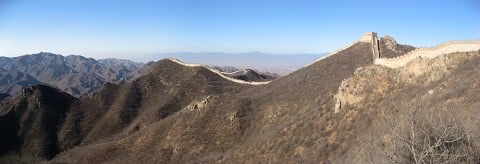From the minute we received our itinerary for the World Race, I knew we would be living in China, a closed country, for at least one month. But I never realized the severity of what this would be like. Even before we entered China, I knew things were going to be more difficult that the life I had grown accustomed to the past 5 months on the Race. Before we entered, we were told by leadership that there would be no internet access allowed—no email, no Skype for phone calls, no research of future destinations—in order to preserve the safety and anonymity of our contacts that we were working with. Although I knew it would be difficult for me, I knew it was essential for our friends. I would want to do nothing to jeopardize the years of work that countless missionaries have poured into patiently building relationships with the locals in hopes of one day, maybe being able to share about their best friend, Jesus Christ.
But I didn’t realize what other freedoms I would have to give up in order to preserve their safety. Yesterday, Katey and I went prayer walking around an enormous Buddhist monastery that is located in town. This monastery is renowned for training monks of the particular type of Buddhism that is prevalent in this region of the country. We had made a large loop around it (it is several miles around), and we were making our way back to one of the main features of the monastery used by monks and locals to worship Buddha. As we walked up the hill, we both made eye contact with two precious grandmas sitting outside of a store directly across the street from the people worshipping. They smiled widely at us, and waved excitedly with both hands, almost motioning us to come over to them. We were in the midst of prayer and just assumed that they wanted to sell us something, so we just smiled back and continued walking. Once we arrived at the main statue, it didn’t feel right in our spirits to get any closer to the worshipping. Our decision was two fold: we didn’t want to be disrespectful to their culture, nor did we want to directly associate ourselves with false worship. So we turned around and walked back down the same path that we had just walked up.

Once again, we came across the grandmothers outside of the store. They spotted us again, and this time one of them scurried inside and brought out a Bible. Although we were not close enough to see what it said (not that it would have mattered anyway since it was in a different language), we both instantly knew that it was a Bible because of the black, hard-back cover, gold page edges, and tabbed book markers. They motioned for us to come over to them, but Katey quietly whispered to me, “We need to keep walking. This could be a trap.” Trusting her discernment, we kept walking back to the main street. After praying for a little while longer, we headed back to the apartment where we were living with our friends this past week. We decided that we would go back the next day around the same time and see if God wanted us to talk to her that day. Maybe we were overreacting about it being a trap and there really were two women who have become Christians in this small town, we reasoned. We were going to pray about it and see where the Lord led us.
Continue reading the rest of the story in Trials of a Closed Country, Part 2








